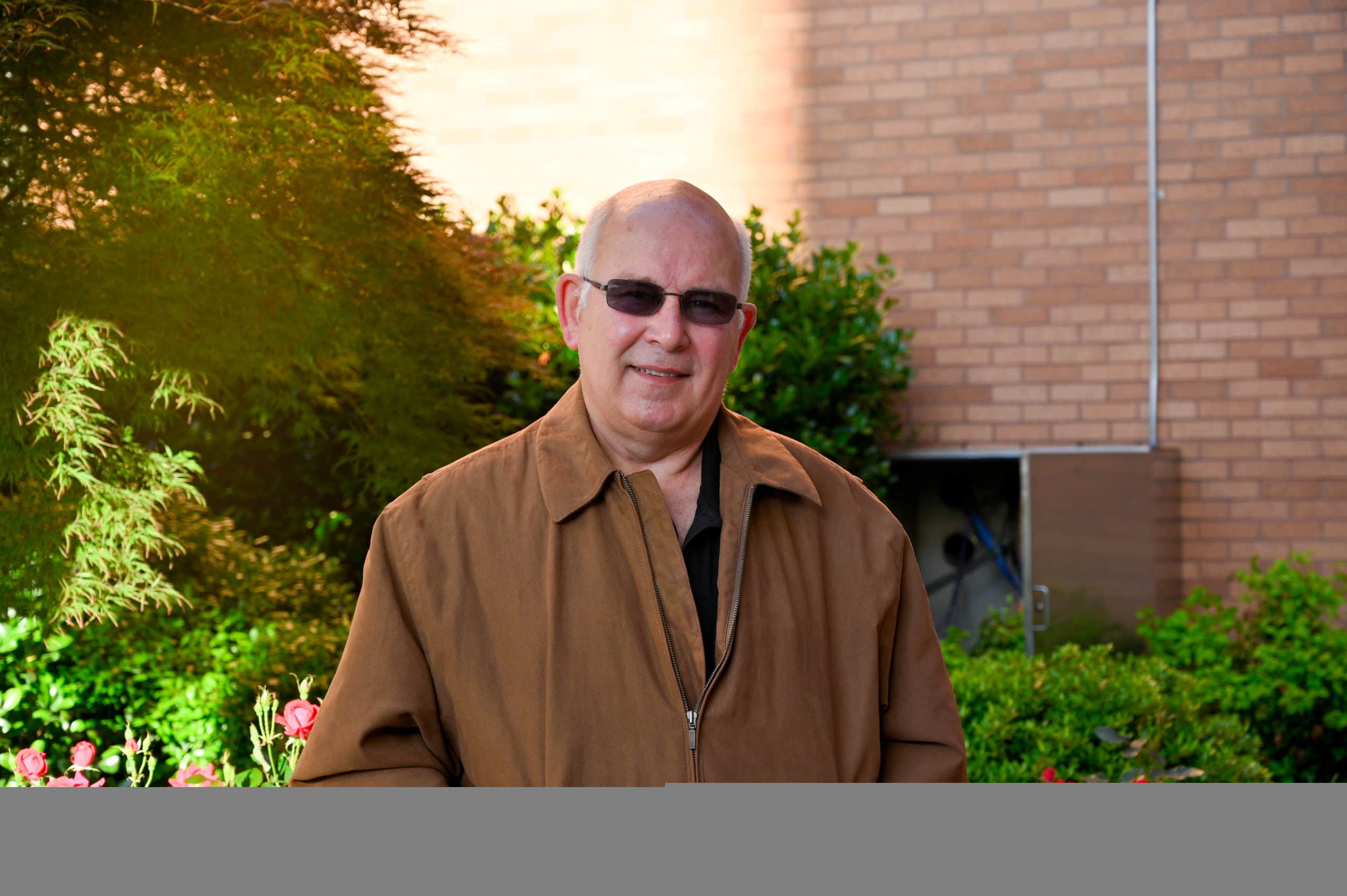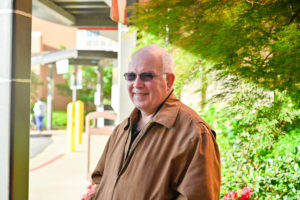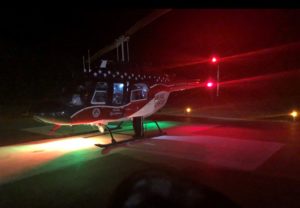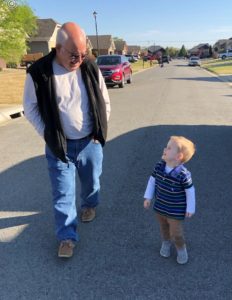View Larger Image

Bill Whiting
Monticello Man Grateful for More Family Time after Stroke Recovery
| Bill Whiting, 67, of Monticello doesn’t remember a lot about what happened to him on Aug. 9, 2020. But he does know he called his wife.
“He was mumbling,” Mary Whiting said. “I couldn’t understand what he was saying. I told him I’m on my way home.”
She arrived within 10 minutes to find their home in disarray. Bill Whiting had broken things as he tried to get around. He had fallen at least once and was bruised from his neck to his hip. The left side of his face was drooping and his balance was off because he could only operate the right side of his body.
“It was obvious to me he was having a stroke,” she said.
The Whitings have two adult sons. Will Whiting and his spouse live in Austin, Texas. Matt Whiting and his spouse live in Conway with their 3-year-old son Camden. The Whiting boys played a lot of baseball growing up.
“There’s probably a bat in just about every room of the house,” Bill Whiting said. “When Mary saw I couldn’t walk or stand, she went and grabbed a bat and asked me to lean my good side on the bat. She propped up my left side and got me to the car.”
Mary Whiting, who is now director of admissions and recruitment at the University of Arkansas in Monticello, used to be a nurse and spent time working in the operating room and emergency room. She was relieved to see a familiar face once they reached the emergency room: Haley Edwards, a registered nurse.
“Haley asked me what I was doing there. I said, ‘Bill’s having a stroke.’”
The health care professionals at Drew Memorial acted immediately. Drew Memorial is one of 56 Arkansas hospitals that are part of the UAMS-led Digital Health Stroke Program. These hospitals have round-the-clock access to stroke neurologists who can quickly assess stroke patients.
Mary Whiting also called her brother, Steve Metzer, M.D., who is a retired neurologist who practiced at UAMS. After a digital health consultation with a neurologist at the UAMS Medical Center, doctors at Drew Memorial quickly administered recombinant tissue plasminogen activator (TPA), a clot-busting drug. Soon after, Whiting was on a helicopter to UAMS, central Arkansas’ only comprehensive stroke center. At UAMS Adewumi O. Amole, M.D., performed a surgical thrombectomy to remove the clot. Neurologist Krishna Nalleballe, M.D., monitored Whiting’s progress as he recovered from the stroke. Whiting’s heart was later evaluated by Hakan Paydak, M.D., a UAMS cardiologist.
“The benefits of a comprehensive stroke center like UAMS is that you have all neuroscience specialties like interventional neuroradiology, neurosurgery and neurology,” Amole said. “We have state-of-the-art equipment and a team skilled in managing acute ischemic and hemorrhagic stroke.”
At the time, the UAMS Medical Center was under visitation restrictions because of COVID-19. While Mary Whiting would have preferred to be by her husband’s side while he was hospitalized, she says the staff did a great job of checking in and keeping her updated.
Immediately after his stroke, Bill Whiting scored a nine on the National Institutes of Health Stroke Scale/Score (NIHSS). NIHSS is a tool health care professionals use to quantify the severity of a stroke. The score can range from zero to 42. A score of one to five is considered mild. Anything over 25 is very severe. Twenty-four hours after treatment, Whiting’s score improved to a two. He was at a zero by the time he was discharged from UAMS on Aug. 12. He scored another zero when he was reexamined during his 90-day follow-up.
The Digital Health Stroke Program has had a significant effect on the state’s stroke outcomes. Arkansas recently fell from seventh place to 13th place in the nation in the number of stroke deaths per capita.
“His mind is as sharp as it ever was,” Mary Whiting said. “This is the perfect example of what the coordination of care can do between hospitals. I was ready to face the worst. This coordination saved him from not being able to function.”
When Bill Whiting left the hospital, his family gathered at their son’s home in Conway, grateful for the opportunity to make more memories together.
Whiting has since gone back to his job at Potlatch Deltic Corporation, where he is a client lands manager. He’s lost 30 pounds and has been more active. His grandson Camden may be responsible for some of the increased activity. Mary Whiting says her husband “lights up at the thought of seeing Cam.” Camden became a big brother on May 5 with the birth of his little sister. Whiting now has two grandkids to enjoy.
“We’re grateful for the way everything worked out,” Mary Whiting said. “One minute we were thinking he could die. Then the news improved to the possibility of him being paralyzed or unable to speak. Three days later we were told we could come pick him up, and he was able to walk. It’s amazing. We credit the coordination of care and the help of the good Lord.”


